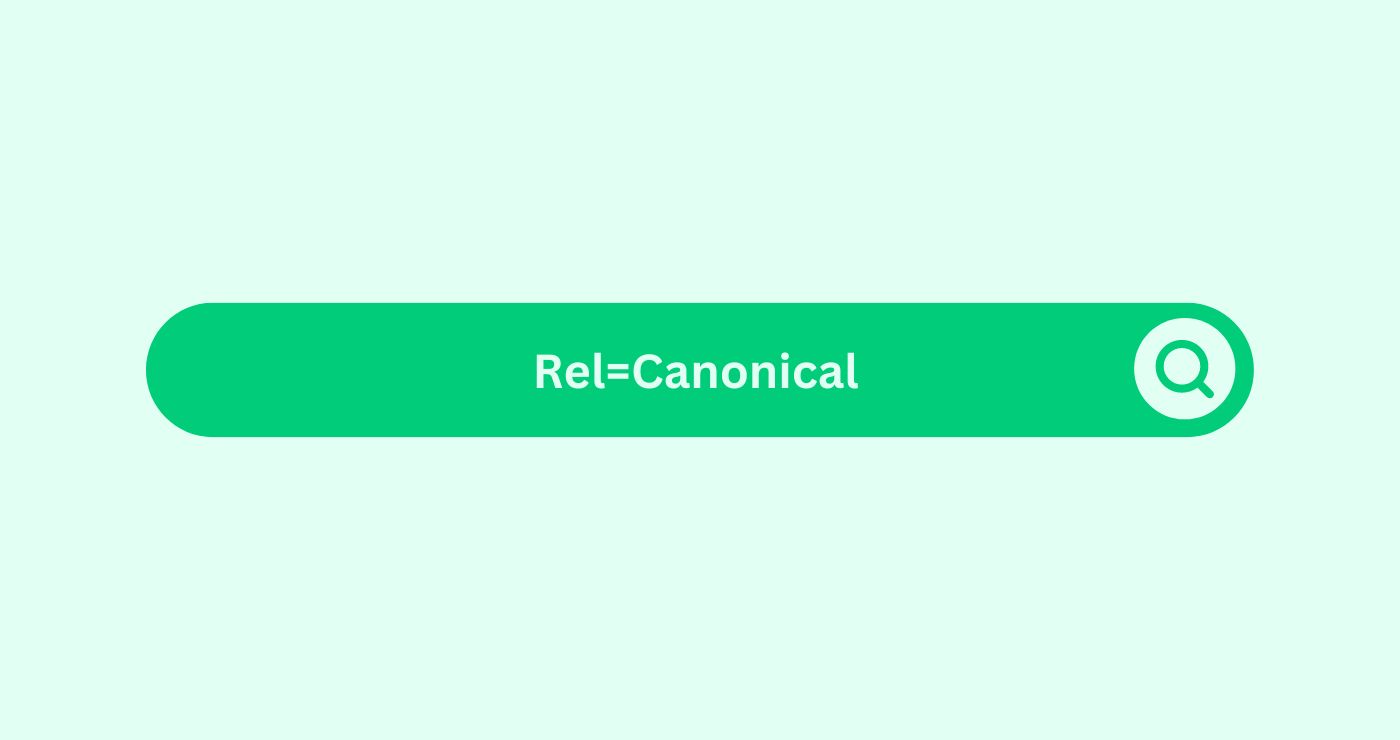Definition
Rel=canonical HTML attribute selects preferred page version in SEO to avoid duplicate contentDefinition Duplicate content in the SEO space refers to iden... issues, consolidate SEO value, signal search engines for indexingDefinition Indexing in content marketing involves search eng... and ranking.
How you can use
Using Rel=canonical tags helps consolidate SEO value by specifying a main URL for multiple product variations, preventing search engine dilution and enhancing user experience.
Formula or Calculation
Rel=canonical does not involve a specific formula or calculation but rather requires the inclusion of a canonical link element within the HTML code of a web page. The canonical URLDefinition Canonical URL refers to the preferred version of ... specified in the rel=canonical tag indicates the preferred version of the content for search engines. The implementation of Rel=canonical involves adding the following HTML tag within the <head> section of the webpage:
html Copy code<link rel="canonical" href="https://example.com/canonical-page">
This tag informs search engines that the specified URL is the canonical (preferred) version of the content.
Key Takeaways
- Use Rel=canonical to specify the preferred URL for content with multiple versions or variations.
- Implement Rel=canonical tags consistently across duplicate or similar pages to consolidate SEO authority.
- Ensure that the canonical URLDefinition Canonical URL refers to the preferred version of ... accurately represents the primary version of the content and is accessible to search engine crawlersDefinition Crawlers, or spiders, are search engine tools tha....
- Regularly monitor canonicalization issues using tools like Google Search ConsoleDefinition Google Search Console is a free web service from ... to identify and address any discrepancies.
- Exercise caution when using Rel=canonical and avoid improper implementation, as it can impact search engine indexingDefinition Indexing in content marketing involves search eng... and rankings.
FAQs
What is the purpose of Rel=canonical in SEO?
Rel=canonical is used to specify the preferred version of a web page when duplicate or similar content exists, consolidating SEO value and preventing duplicate contentDefinition Duplicate content in the SEO space refers to iden... issues.
How does Rel=canonical differ from 301 redirects?
Rel=canonical is a directive within the HTML code of a webpage that signals the preferred URL to search engines, while a 301 redirect physically redirectsDefinition Effective redirects are crucial for SEO firms to ... users and search engine crawlersDefinition Crawlers, or spiders, are search engine tools tha... from one URL to another.
Can Rel=canonical be used across different domains?
No, Rel=canonical should only be used within the same domain to indicate the preferred URL for content variations on that domain.
What happens if multiple pages specify different canonical URLs?
Search engines may choose to honor one canonical URLDefinition Canonical URL refers to the preferred version of ... over others or may ignore conflicting canonical directives altogether, potentially leading to indexingDefinition Indexing in content marketing involves search eng... and ranking issues.
Should canonical URLs include parameters or tracking tags?
Canonical URLs should generally be clean and devoid of unnecessary parameters or tracking tags to ensure accurate canonicalization and prevent confusion.
Can Rel=canonical be used for non-HTML content, such as PDF files or images?
Yes, Rel=canonical can be implemented for various types of content, including PDF files, images, and other non-HTML formatsDefinition In the SEO space, "formats" refer to the various ..., to specify the preferred URL for indexingDefinition Indexing in content marketing involves search eng... purposes.
How often should Rel=canonical tags be reviewed and updated?
Rel=canonical tags should be reviewed regularly, especially after website updates or content changes, to ensure they accurately reflect the preferred version of the content.
Can Rel=canonical help with pagination issues on a website?
Yes, Rel=canonical can be used to consolidate pagination pages into a single preferred URL, helping to prevent duplicate contentDefinition Duplicate content in the SEO space refers to iden... and maintain SEO authority.
Is it necessary to include a self-referencing canonical tag on every webpage?
While it's generally recommended to include a self-referencing canonical tag on each webpage, especially for dynamically generated content, it may not be necessary for static pages or pages with unique content.
How can I verify if Rel=canonical tags are correctly implemented?
You can verify Rel=canonical implementation using browserDefinition A browser is a software application used to acces... developer tools, SEO crawlingWhat is crawling in the context of SEO? Monitor SERP metrics... tools, or Google's URL Inspection tool in Google Search ConsoleDefinition Google Search Console is a free web service from ... to ensure that canonical URLs are being interpreted correctly by search engines.




